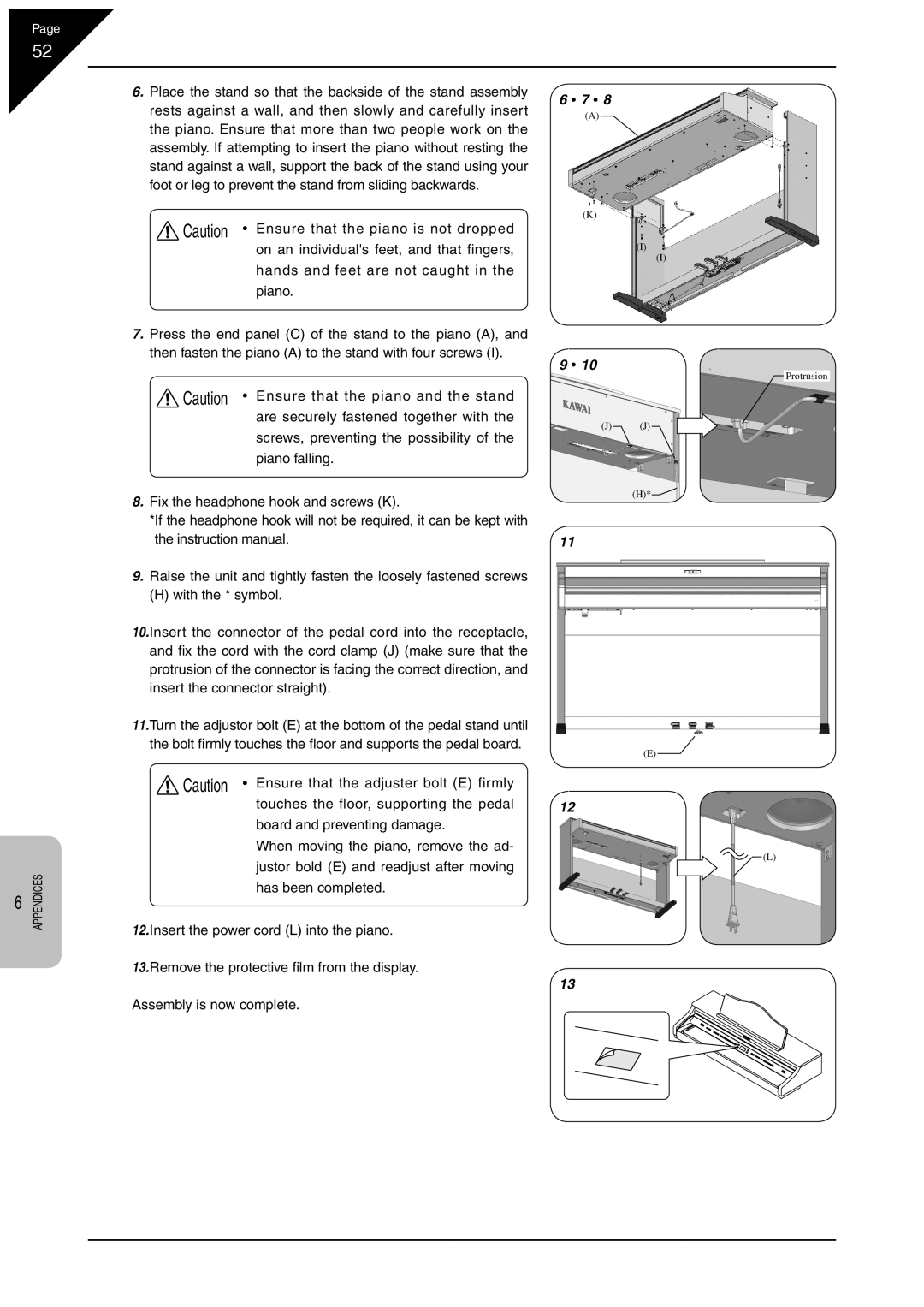
Page
52
6 | APPENDICES |
|
6.Place the stand so that the backside of the stand assembly rests against a wall, and then slowly and carefully insert the piano. Ensure that more than two people work on the assembly. If attempting to insert the piano without resting the stand against a wall, support the back of the stand using your foot or leg to prevent the stand from sliding backwards.
![]() Caution y Ensure that the piano is not dropped on an individual's feet, and that fingers,
Caution y Ensure that the piano is not dropped on an individual's feet, and that fingers,
hands and feet are not caught in the piano.
7.Press the end panel (C) of the stand to the piano (A), and then fasten the piano (A) to the stand with four screws (I).
![]() Caution y Ensure that the piano and the stand are securely fastened together with the
Caution y Ensure that the piano and the stand are securely fastened together with the
screws, preventing the possibility of the piano falling.
8.Fix the headphone hook and screws (K).
*If the headphone hook will not be required, it can be kept with the instruction manual.
9.Raise the unit and tightly fasten the loosely fastened screws
(H) with the * symbol.
10.Insert the connector of the pedal cord into the receptacle, and fi x the cord with the cord clamp (J) (make sure that the protrusion of the connector is facing the correct direction, and insert the connector straight).
11.Turn the adjustor bolt (E) at the bottom of the pedal stand until the bolt firmly touches the floor and supports the pedal board.
![]() Caution y Ensure that the adjuster bolt (E) firmly touches the floor, supporting the pedal
Caution y Ensure that the adjuster bolt (E) firmly touches the floor, supporting the pedal
board and preventing damage.
When moving the piano, remove the ad- justor bold (E) and readjust after moving has been completed.
12.Insert the power cord (L) into the piano.
13.Remove the protective fi lm from the display.
Assembly is now complete.
6 y 7 y 8
(A)![]()
(K)
(I)
(I)
9 y 10
Protrusion
(J)(J)
(H)*![]()
11
(E)
12
(L)
13
